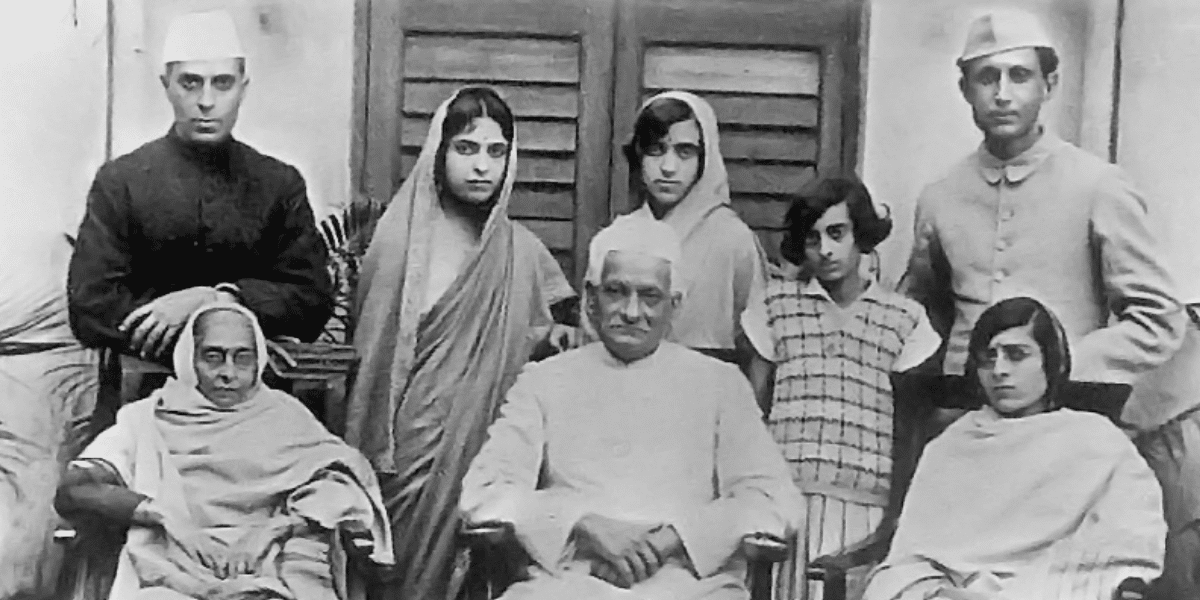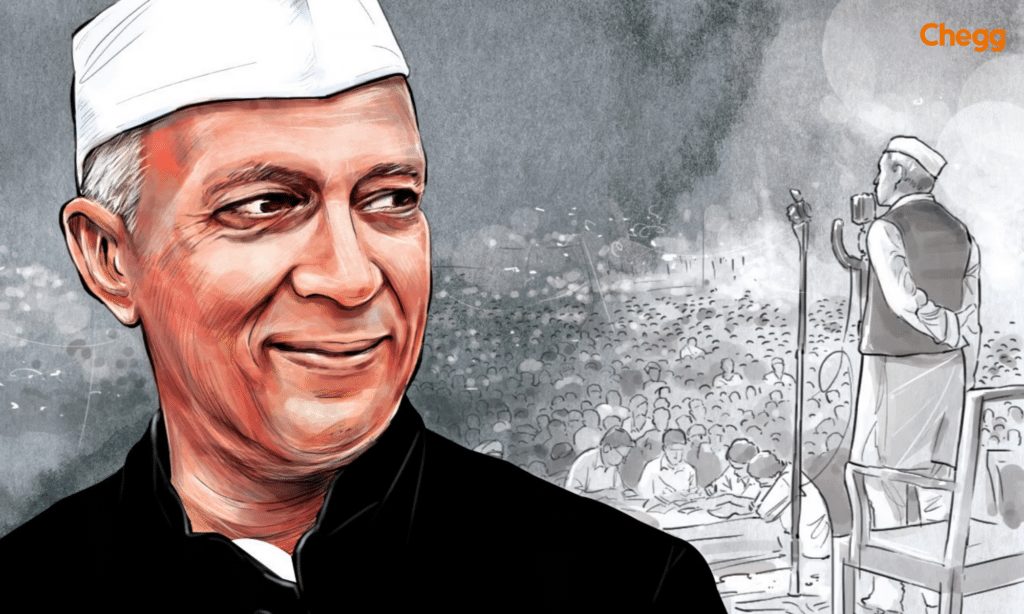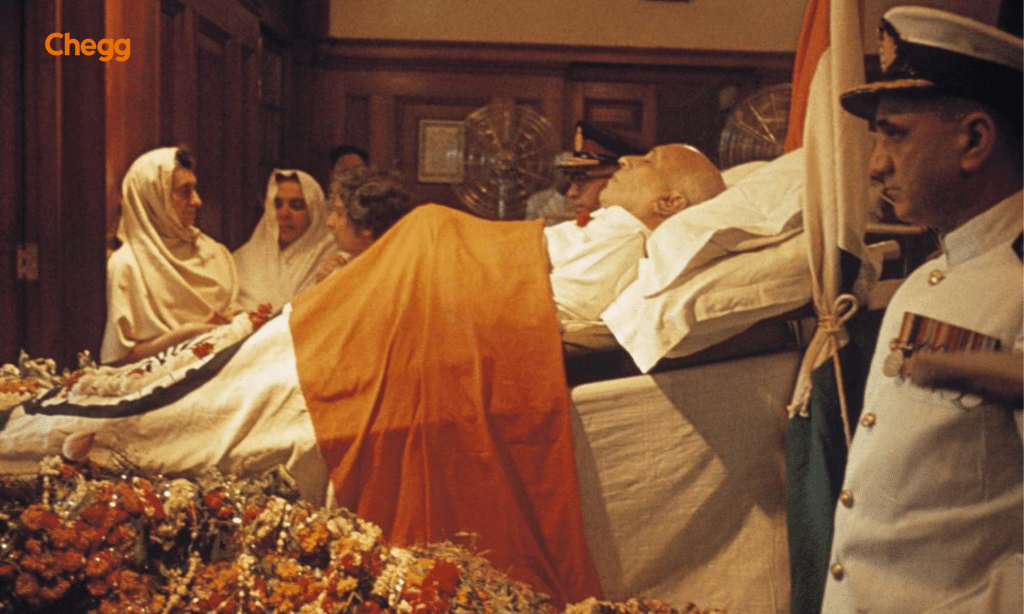
Quick Summary
The Nehru family has been one of the most influential political families in Indian history.
Jawaharlal Nehru, India’s first Prime Minister, and his descendants shaped the nation’s modern democratic system.
The family’s impact extends beyond politics, influencing culture, governance, and policy in India.
Table of Contents
The Nehru family is one of the most influential political families in India, shaping the country’s political landscape for decades. From Jawaharlal Nehru, the first Prime Minister of India, to his daughter Indira Gandhi, and later his grandchildren, the Nehru family has been at the forefront of India’s political evolution. In this article, we will explore the Nehru family History, their political contributions, and how they continue to influence Indian politics today.
The Nehru family, one of India’s most prominent political dynasties, has a rich history intertwined with the country’s struggle for independence and its subsequent development. The family’s roots can be traced back to the Kashmiri Pandit community, with the earliest known ancestor being Raj Kaul, who migrated to Delhi in the 18th century. Jawaharlal Nehru, the most notable member of the family, was born on November 14, 1889, in Allahabad. He was the son of Motilal Nehru, a prominent lawyer and nationalist leader, and his wife, Swaruprani Thussu. The Nehru family was deeply involved in the Indian National Congress and the freedom movement, with Motilal Nehru serving as the president of the Congress twice.
Jawaharlal Nehru’s political career culminated in his role as the first Prime Minister of India, a position he held from 1947 until his death in 1964. His daughter, Indira Gandhi, followed in his footsteps, becoming the first and, to date, the only female Prime Minister of India. The family’s legacy continued with Indira’s son, Rajiv Gandhi, who also served as Prime Minister. The Nehru-Gandhi family has played a significant role in shaping modern India, with their influence extending across generations in Indian politics.
The Jawaharlal Nеhru, nicknamеd Pandit (Hindi: “Pundit” or “Tеachеr”), was thе first Prime Ministеr of indеpеndеnt India. Jawaharlal Nehru’s birthday comes on 14th November, which is celebrated every year. Hе was also one of thе important lеadеrs of the Indian indеpеndеncе movement in the 1930s and 1940s. Let us know more about Jawaharlal Nеhru biography and Nehru Family in detail.
| Criteria | Details |
|---|---|
| Born On | 14 November 1889 |
| Died On | 27 May 1964 |
| Place Of Death | New Delhi |
| Cause Of Death | Heart Attack |
| Place Of Birth | Allahabad, Uttar Pradesh, India |
| Father’s Name | Motilal Nehru |
| Mother’s Name | Swarup Rani Nehru |
| Spouse | Kamala Nehru |
| Children | Indira Gandhi |
| Education | Cambridge’s Trinity College, London’s Harrow School, and London’s Inns of Court School of Law |
| Occupation | Barrister, Writer, and Politician |
| Political Party | Indian National Congress |
| Political Ideology | Socialism, Nationalism, and Democracy |
| Awards | Bharat Ratna |
| Publications/Work | The Autobiography of Jawaharlal Nehru, The Discovery of India, Glimpses of World History, Letters from a Father to His Daughter, etc. |
| Memorial | Shantivan, New Delhi |
November 14, 1889, saw the birth of Jawaharlal Nehru, a well-known figure in Indian history, in Allahabad, Uttar Pradesh. The Nehru family, mother Swarup Rani Nehru, and father Motilal Nehru were influential figures in his upbringing. The political voyage and leadership of Nehru had a significant effect on India. His daughter, Indira Gandhi, went on to become a well-known political figure after he wed Kamala Nehru.
Indira Gandhi met Feroze Gandhi following her admission into the Congress Party. Feroze Gandhi was a prominent Youth Congress member and a reporter at the time. Eventually, in 1941, Indira Gandhi wed Feroze Gandhi despite her father’s opposition. Sanjay Gandhi was born second, after Rajiv Gandhi. On May 27, 1964, Nehru passed away in New Delhi after suffering a heart attack. His reputation as the nation’s first prime minister and a pivotal player in the fight for independence leaves a lasting mark on history.
Jawaharlal Nehru was born on November 14, 1889, in Allahabad (now Prayagraj), India, into an affluent and distinguished family of Kashmiri Brahmins. His family was highly respected in the region for their education and social standing.
Nehru’s childhood was one of privilege, surrounded by comforts. His early years were spent in the family’s estate in Allahabad, where he was given the best possible upbringing. Although Nehru was born into a family with a deep connection to traditional Indian values, his family was also heavily influenced by the Western education system.
He was a sensitive and inquisitive child, always interested in exploring the world around him. During his early years, Nehru was largely raised by his English governess, Miss Nannie, who instilled in him a love for Western literature and ideas. Nehru also spent time with his maternal grandfather, who was an important influence on his intellectual development.
Nehru’s education was a blend of traditional Indian and Western schooling. His early education began at home with private tutors and governesses. However, as he grew older, it became evident that he required a more structured and formal education.
Nehru’s exposure to Western liberalism, socialism, and nationalism played a critical role in shaping his vision for India. His time in England and his interactions with other intellectuals, particularly those advocating for social reforms, gave him a sense of mission. His own deep desire for India to gain independence from British colonial rule grew stronger, especially after witnessing the political movements in Europe and the political conditions in India.
It was during this period that Nehru began to engage more seriously in the Indian independence struggle, eventually becoming one of its central leaders.

Jawaharlal Nehru, India’s first Prime Minister, had a significant and transformative political journey that spanned several decades and shaped the nation’s post-colonial identity. His political journey can be traced from his early life to his rise as a leader of the Indian National Congress (INC), and later as the first Prime Minister of independent India.
Nehru was born on November 14, 1889, in Allahabad, to Motilal Nehru, a prominent lawyer and nationalist leader. Nehru was educated at prestigious institutions, including Harrow School in England, and later at Eton College and Trinity College, Cambridge. He then went on to study law at the Inner Temple in London.
During his time in England, Nehru was exposed to ideas of social justice, democracy, and political freedom, which had a significant influence on his later political ideology. However, it was during his visit to Europe and his exposure to the rising tide of nationalism and socialism that Nehru’s political consciousness began to take shape.
Nehru’s political journey began in earnest after his return to India in 1912. He was deeply influenced by the freedom struggle led by Mahatma Gandhi, and the oppressive British colonial rule. Although his father, Motilal Nehru, was a prominent member of the Congress Party, Jawaharlal initially had reservations about politics. However, after the outbreak of World War I and the repressive policies of the British government, Nehru became increasingly involved in politics.
In 1916, Nehru joined the Indian National Congress (INC) and soon became a leading figure in the movement. He was inspired by the ideas of nationalism and self-rule, and he became an advocate for complete independence from British colonial rule.
Nehru’s political ideology and vision were greatly shaped by Mahatma Gandhi. In the 1920s, Nehru became one of Gandhi’s closest allies and a key leader in the freedom struggle. He adopted the principles of non-violence (ahimsa) and civil disobedience, which were central to Gandhi’s methods of protest against British rule.
During the Salt March of 1930 and the Civil Disobedience Movement, Nehru was arrested by the British authorities, and this marked his increasing prominence as a leader of the Indian independence movement. Nehru was also deeply involved in the 1931 Round Table Conferences in London, where he represented the Congress Party in talks with the British government.
By the 1930s, Nehru had become one of the most important and influential leaders of the Indian National Congress. He was appointed President of the INC several times and was particularly active in formulating policies for India’s future. Nehru’s vision was one of a modern, secular, and democratic India, which would be based on the principles of socialism and industrialization.
In the 1940s, Nehru became the foremost leader of the Congress after the decline of Gandhi’s direct involvement in politics. During this period, Nehru was involved in negotiating with the British government for India’s independence and played a key role in the Quit India Movement of 1942, which demanded the immediate departure of the British from India.
Nehru’s political career culminated in the historic moment of India’s independence on August 15, 1947. He became the first Prime Minister of independent India, marking a new chapter in the nation’s history. However, independence came at a high cost – the partition of India into two separate nations, India and Pakistan. The partition led to widespread violence, the mass displacement of populations, and a deep sense of tragedy for millions of people.
Despite the challenges posed by partition, Nehru remained committed to the task of nation-building, striving to create a modern, democratic India. He adopted policies aimed at promoting industrialization, education, and social welfare, while also pursuing a policy of non-alignment in foreign relations.
As India’s first Prime Minister, Nehru faced the complex task of uniting a diverse nation with multiple languages, religions, and cultures. He advocated for a secular state, with a strong emphasis on the protection of minority rights. Nehru’s vision for India was that of a welfare state, where development would be driven by planning, education, and technological advancements.
Nehru was a key architect of India’s Five-Year Plans and oversaw the establishment of state-owned enterprises, which played a crucial role in India’s industrial growth. He was also instrumental in promoting scientific research and higher education, leading to the establishment of institutions such as the Indian Institutes of Technology (IITs) and the Indian Institutes of Management (IIMs).
Nehru’s foreign policy was based on non-alignment, as he sought to keep India independent from the Cold War rivalry between the United States and the Soviet Union. India became a founding member of the Non-Aligned Movement (NAM) in 1961, under Nehru’s leadership.
While Nehru’s policies of economic development and non-alignment gained international recognition, his tenure was not without challenges. The 1962 India-China war, which resulted in a humiliating defeat for India, posed a serious setback to Nehru’s leadership. Despite this, Nehru remained a central figure in Indian politics until his death on May 27, 1964.
Nehru’s legacy as a visionary statesman, architect of modern India, and champion of democracy and secularism continues to be a subject of debate. While some criticize his economic policies for being overly socialist, others applaud his efforts to lay the foundation for a modern, industrialized India. His role in promoting education, scientific research, and the idea of an inclusive, democratic nation has had a lasting impact on India’s development.
Jawaharlal Nehru’s foreign policy was characterized by a commitment to non-alignment, which emerged during the Cold War era when the world was largely divided into two blocs led by the United States and the Soviet Union. Nehru’s approach was shaped by several key principles and events:

Jawaharlal Nehru, the first Prime Minister of India, passed away on May 27, 1964. His death marked the end of an era in Indian politics, as he had been a central figure in the Indian independence movement and had played a significant role in shaping modern India. Nehru’s health had been declining for some time, and he suffered a heart attack shortly before his death. His passing was mourned across the nation, and he was given a state funeral attended by thousands of people, reflecting his immense influence and legacy in Indian history.
Jawaharlal Nеhru was one of thе intеrnational lеadеrs who pionееrеd thе Non-Alignеd Movement, which offеrеd Third World countries an altеrnativе to join thе US-lеd Wеstеrn alliancе. Today, the life and legacy of Jawaharlal Nеhru bring us messages of hopе, dеmocracy, and humanity.
The four pillars of his domestic policy were democracy, socialism, unification, and secularism. He successfully integrated these pillars into the construction of modern India. Children in school celebrate his birthday by participating in the Pandit Jawaharlal Nehru Essay and Speech competition, thus introducing us to their modern Indian architectural discipline.
At Lady Dufferin Hospital in Allahabad, Feroze was taken in by his mother’s sister, Shirin Commissariat, who was among the first female doctors in the nation. Jehangir Gandhi, a marine engineer, and his wife Ratti had a son named Feroze. They both were from Gujarati middle-class families that immigrated to Bombay.
During their time as India’s prime ministers, Jawaharlal Nehru and his daughter Indira Gandhi were close friends of Mahatma Gandhi. But Indira Gandhi’s husband Feroze Gandhi gave her the surname. It was unrelated for Feroze and the Mahatma.
She was the daughter of Jawaharlal Nehru, India’s first prime minister, and the mother of Rajiv Gandhi, who later became the country’s sixth prime minister. Gandhi’s total term of 15 years and 350 days in office ranks her as the second-longest-serving prime minister of India, following her father.
Madeleine Slade, also known as Mirabehn, is often referred to as Gandhi’s adopted daughter. She was a British woman who became a devoted follower of Mahatma Gandhi and dedicated her life to his principles of non-violence and sustainable development. Let me know if you’d like to learn more about her contributions!
Jawaharlal Nehru often referred to Mahatma Gandhi as “Bapu”, a term of endearment meaning “father” in Hindi. This reflected the deep respect and admiration Nehru had for Gandhi as a leader and a guiding figure in India’s struggle for independence.
Jawaharlal Nehru had one child, Indira Gandhi, born on November 19, 1917. She later became India’s first female Prime Minister and played a significant role in shaping the nation’s political landscape. Nehru’s bond with Indira was deeply influential in her life and career.
Jawaharlal Nehru passed away on May 27, 1964, at the age of 74. His death marked the end of an era in Indian politics, as he was India’s first Prime Minister and a key figure in the nation’s independence movement. Let me know if you’d like to explore more about his life or legacy!
Read More:-
Rajendra Prasad: Biography and Interesting Facts
Bhagat Singh Biography: A Glimpse into Education, and Facts
Missile Man of India- History, Biography, Thoughts and Books

Authored by, Muskan Gupta
Content Curator
Muskan believes learning should feel like an adventure, not a chore. With years of experience in content creation and strategy, she specializes in educational topics, online earning opportunities, and general knowledge. She enjoys sharing her insights through blogs and articles that inform and inspire her readers. When she’s not writing, you’ll likely find her hopping between bookstores and bakeries, always in search of her next favorite read or treat.
Editor's Recommendations
Chegg India does not ask for money to offer any opportunity with the company. We request you to be vigilant before sharing your personal and financial information with any third party. Beware of fraudulent activities claiming affiliation with our company and promising monetary rewards or benefits. Chegg India shall not be responsible for any losses resulting from such activities.
Chegg India does not ask for money to offer any opportunity with the company. We request you to be vigilant before sharing your personal and financial information with any third party. Beware of fraudulent activities claiming affiliation with our company and promising monetary rewards or benefits. Chegg India shall not be responsible for any losses resulting from such activities.